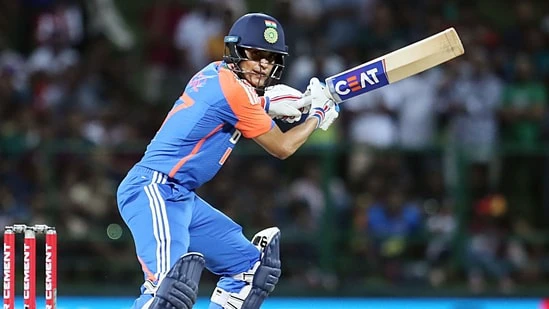Shubman Gill is riding the crest of a wave. His transformation from an understandably nervy first-time Test captain to an authoritative leader by the end of the five-match showdown in England was evident, helped by the fact that he amassed more runs in a series (754) by an Indian skipper than ever before.
But does that necessarily mean that he should be an automatic choice for the T20 Asia Cup, beginning in Dubai on September 9?
In India, more than anywhere else, the temptation to use performances in one format to buttress prospects in another is all too prevalent. This is not to say that Gill is not a terrific T20 player; it’s just that under the circumstances, the 25-year-old will be better off shouldering the responsibilities of the Test side and bide his time when it comes to the 20-over format.
In six months, India will begin the defence of their T20 World Cup title, at home. This timeframe is generally considered the ideal period to separate the wheat from the chaff, so to say — to apply finishing touches and zero in on the 15 best suited to mount that defence. It’s that endeavour that chief selector Ajit Agarkar and head coach Gautam Gambhir will embark on, starting from the Asia Cup.
The international retirements from the shortest format in June last year after the World Cup was secured in Bridgetown of Rohit Sharma and Virat Kohli had thrown up lacunae at the top of the order, which seemed to have been filled by Gill, in his avatar as skipper, and Yashasvi Jaiswal on the tour of Zimbabwe last July. But neither man has played in India’s last three series – their last outings were in Pallekele late last July – during which time Sanju Samson and Abhishek Sharma have done precious little wrong at the top of the order.
T20 cricket encourages multi-skilled players, which Samson, as designated wicketkeeper and Abhishek, who fuses left-handed batting brilliance with competent left-arm spin, most certainly are. Gill is a specialist batter, which alone shouldn’t rule him out.
One of the overwhelming arguments against Gill featuring in the Asia Cup must be the proximity of India’s home Test series against West Indies, their first engagement as hosts in the latest cycle of the World Test Championship, to the Asia Cup.
The Asia Cup final is on September 28, the first of two Tests against the Caribbeans begins in Ahmedabad on October 2. Assuming India make the final – and it is under that basic assumption that the campaign will be mounted – the turnaround time between the desert adventure and the Test series is miniscule to non-existent. The switch between formats won’t be to anyone’s advantage, least of all Gill, as India attempt to make the most of back-to-back home showdowns (they play South Africa in two Tests in November) to climb up the WTC points table.
Overflowing with options
In any case, India are spoilt for choices. It will be unfair on Samson and Abhishek if they are nudged out just to accommodate Gill (and/or Jaiswal). Abhishek, 24, hammered 279 runs at a ludicrous strike-rate of 219.68 in India’s last assignment, a five-match series against England, and his last T20I innings yielded 135 (off 54 deliveries) at the Wankhede. Samson didn’t have a great run against Jos Buttler’s side but smashed three centuries in the five innings leading up to the England series. They have formed a terrific left-right combination that has hit the right notes in the last several months, and deserve by right the chance to build on their gains as India finetune their preparations for the World Cup.
India’s top order is an embarrassment of riches, Suryakumar Yadav’s loss of form after being entrusted with captaincy duties no more than a temporary blip. Tilak Varma is in the form of his life and between them, they appear to have locked the No. 3 and No. 4 slots. It’s difficult to see Gill, whose 578 runs in 21 T20Is have come at a strike-rate of 139.27, displacing either of these two established names, which implies that for now, it will be in everyone’s interests if he is allowed to concentrate on trying to take a Test team in transition forwards.
Between the two home Test series, India travel to Australia for a white-ball faceoff that too Gill is most likely to miss for obvious reasons. If they manage to set sentiment and recency bias aside, the primary decision-makers will recognise the wisdom of allowing Gill to settle into his role as Test boss and revisit their T20I options after their marquee clash against WTC champs South Africa.
